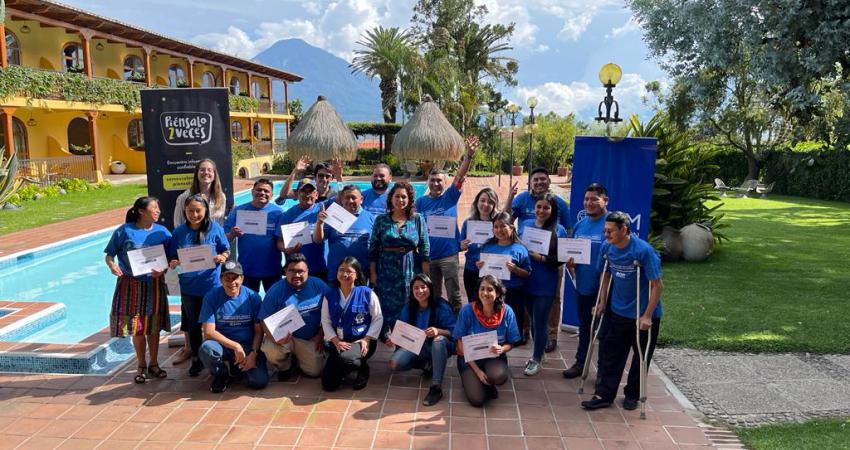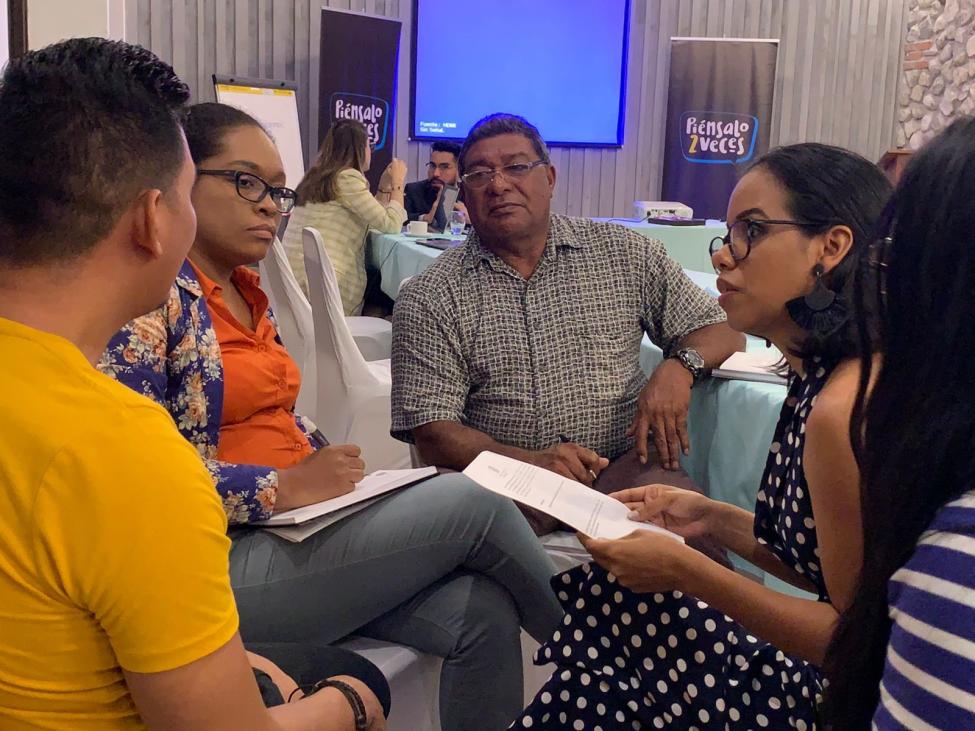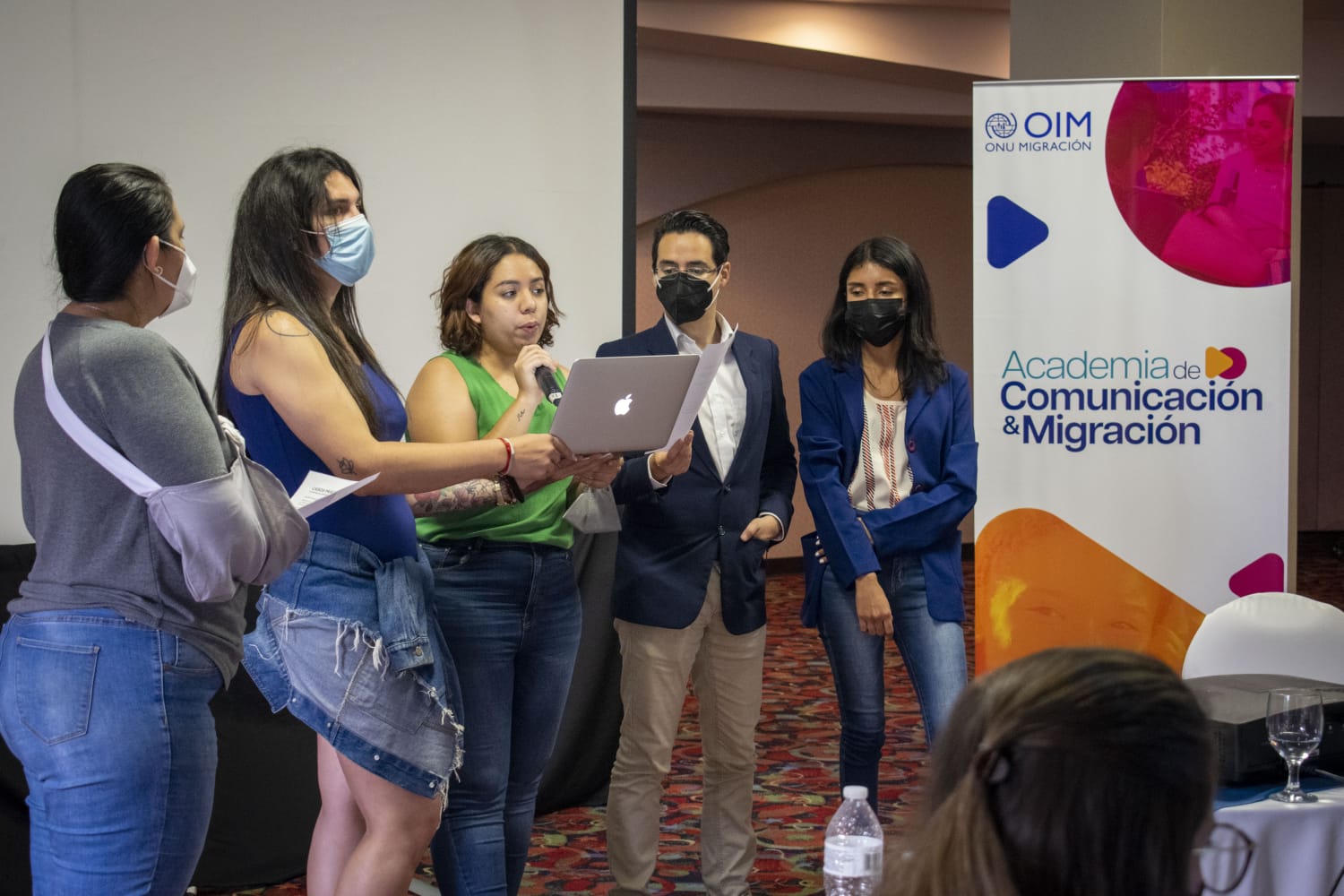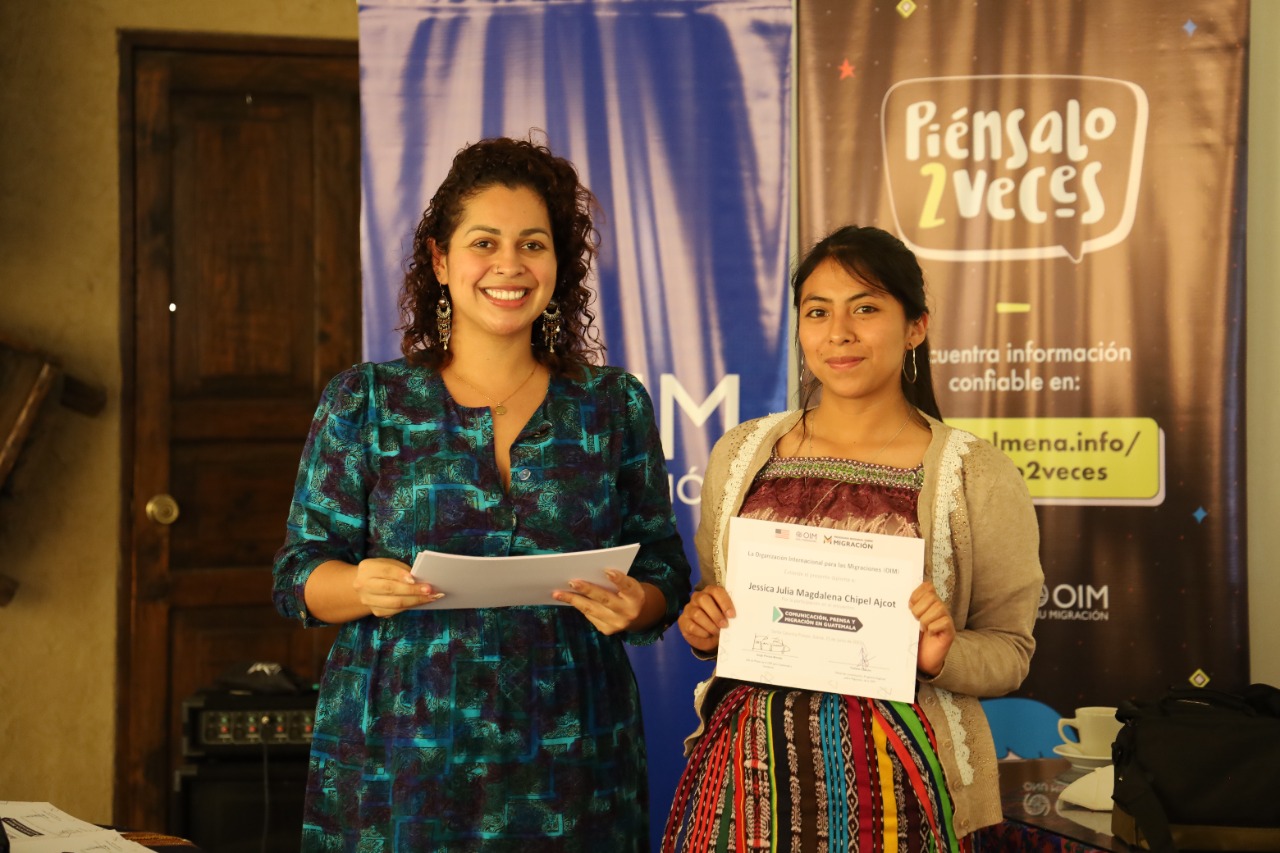More than 160 communication professionals from six countries specialize in addressing migration

The International Organization for Migration (IOM) has developed a series of training processes focused on providing tools for ethical coverage of migration based on international law and evidence. A total of 162 professionals from national and local print media, television, radio and digital media, as well as communicators from public institutions in Mexico, Guatemala, Honduras, El Salvador, Costa Rica and Panama were trained.

The media are key players in the construction of public opinion and their coverage of such a complex issue as migration has an impact on the perceptions of audiences. "After this workshop I feel committed to fulfill my role as a journalist who influences society with behaviors, habits and values whose main objective is to guide citizens to be more humane and provide dignified treatment to all migrants," said Maybelline Melony, one of the participating journalists in Panama.
In this series of courses, academies, meetings and workshops, recommendations were discussed to produce alternative narratives to those normally presented, so that migrants have a voice in communication pieces and not be victimized or stereotyped. In addition, participants committed to promote the use of the correct terms to refer to the various categories and stages of migration, knowledge of current regulations and provide tools to combat the myths and clichés that exist about migrants.

The trainings were developed considering the context and needs of each country, based on local alliances. In the case of El Salvador, the workshop was developed in conjunction with the General Directorate of Migration and Aliens (DGME). In Honduras, the workshop was facilitated by Aldo Romero, National Academic Head of Journalism at CEUTEC. In Costa Rica, the course was certified by the University of Costa Rica and in Panama, government counterparts such as the National Commission against Trafficking in Persons and other agencies, funds and programs of the United Nations System, such as UNAIDS and PAHO, participated. In the case of Mexico, it was implemented in coordination with the Association of Communicators of Baja California, with the participation of Tom Felle, academic coordinator of communication and journalism at the National University of Ireland, Galway.

This activity complements IOM's efforts in communication for development, as it recognizes the role of the media as a key actor for social change. In addition, it joins the global efforts of the Global Media Migration Academy, a global coalition of migration experts, academics and media professionals working together to provide courses on migration and seek more balanced and accurate coverage[1]. It was implemented by IOM’s Western Hemisphere Program, funded by the U.S. Department of State Bureau of Population, Refugees and Migration.
This program has developed a series of resources for an ethical approach to migration that are available here.